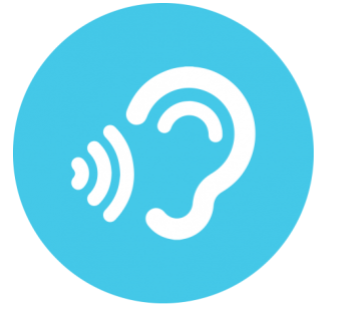Blog
-

Understanding hearing loss, the second most common impairment in the world.
 4 Jun , 2018
4 Jun , 2018
Understanding hearing loss, the second most common impairment in the world.
Hearing loss is one of the most severe forms of disability and the second most common impairment in the world. A World Health Organization (WHO) report suggests that around 6.3 million people in India suffer from either complete or partial deafness, and of these at least, 50 % are children. Even though deafness is common globally, experts say that there is a need for awareness and to increase the level of attention paid to this issue.
There are two categories of hearing loss in children and adults — conductive and sensory neural hearing loss. Hearing loss may develop due to a nasal infection, otitis media infection, or upper respiratory infection (conductive hearing loss). Sometimes, congenital disorders may also result in hearing loss in babies (sensory neural hearing loss). This is highly possible when both the mother and the father have a history of hearing loss.
However, there are several ways to prevent conductive hearing loss due to recurrent infections in children. This can be done with the help of medications, such as antibiotics, histamines, decongestants, and mucolytics, and by avoiding the use of ototoxic drugs. Administration of ototoxic drugs during pregnancy or postpartum to treat infections may sometimes induce hearing loss in infants.
Noise pollution is one of the major causes of hearing problems in the elderly and children. It also falls under the category of sensory neural hearing loss, which is sometimes triggered due to an exposure to loud noise, standing too close to large music speakers and excessive use of earphones.
People are now getting exposed to sound more than 90 decibels for more than eight hours. Urbanisation has led to an increase in vehicular noise, loud music, crackers and excessive use of mobile phones, and all these reasons are leading to hearing impairment. When people get exposed to sound more than 90 decibels, they develop mental fatigue that leads to loss of sleep. This causes damage to hair cells in the inner ear, which in turn, causes nerve deafness (sensory neural hearing loss) where the affected person is unable to differentiate between the sounds.
WHO defines “deafness” as a complete loss of hearing ability in one or both ears. Individuals experiencing a hearing loss of more than 90 dB in either of the ear (profound impairment) or a total loss of hearing in both the ears are considered to be suffering from deafness.
Therefore, one must always keep in mind that your mouth should be uncovered when it comes to communicating with a deaf person. Exaggerating voice or lip movements can distort the message; it is better to speak clearly and at a normal rate. Maintain eye contact while indulging in a conversation with them. This ensures that you are facing the person and they can use speech reading to understand you better.
A positive attitude, timely medical check-up, daily exercises, avoidance of high music may and upper respiratory chest infections keep you safe from hearing loss. These are some of the steps one should take to tackle early onset of hearing loss, especially in children and those aged below 50. Hearing loss may start in people aged above 60, and therefore, it is better to stay proactive and prevent early onset of this disability.
A Atlantic Hearing continues to offer free hearing examinations to anyone in the community who requests this free service. We have maintained this offering to our community, at the same location, for the past 47 years. Please contact us and make an appointment. Hearing exams are completely painless, take a short amount of your time, and can be of tremendous benefit to you should you have a hearing loss. At A Atlantic Hearing “We Care About What You Hear”!
Source: Business Standard, Rohit Vishnoi, Otolaryngologist and ENT surgeon
Image credit: Pixabay





























































































































































































































































































































































































































































































































































































